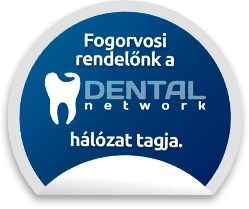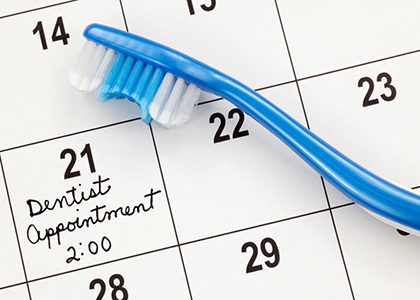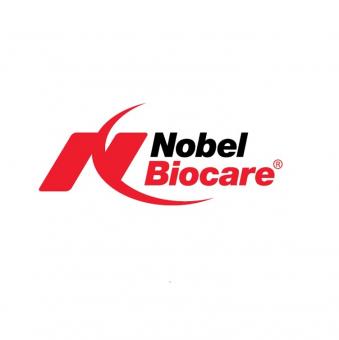Coated Tongue – Causes, Symptoms, and Treatment Options
A coated tongue is a relatively common condition characterized by a white, yellow, or brownish coating on the surface of the tongue. Causes can include poor oral hygiene, dehydration, smoking, excessive alcohol consumption, and certain health conditions such as candidiasis or leukoplakia.
Diagnosis of a coated tongue is made through a medical examination, and treatment includes professional care, maintaining proper oral hygiene, regular cleaning of the tongue, and lifestyle changes if necessary.
In this post, we will thoroughly explore the causes, symptoms, treatment, and prevention tips for a coated tongue.
What is a Coated Tongue?
A coated tongue is identified by a white, yellow, or brown deposit on the tongue's surface. The white patches that cover the tongue are easily recognizable, often a result of poor oral hygiene or a symptom of a health issue.
It is crucial to pay attention to tongue health, as the coating can contain dead cells and bacteria, leading to an overgrowth that may result in infections within the oral cavity.
Coated Tongue vs. Geographic Tongue
It is important not to confuse a coated tongue with geographic tongue. While a coated tongue features a white, yellow, or brown coating, geographic tongue, medically known as lingua geographica, is characterized by irregular, smooth, red patches on the tongue's surface, which often change and resemble a map.
Geographic tongue is harmless and usually does not cause discomfort, unlike a coated tongue.
Causes of a Coated Tongue
The presence of a coating on the tongue can be bothersome and uncomfortable. It is crucial to seek professional help to identify the cause and treat the problem at its root, alleviating symptoms and eliminating the underlying cause.
Common causes of a coated tongue include:
Oral Hygiene Issues: Inadequate oral hygiene (lack of regular brushing, improper toothpaste and toothbrush use, insufficient cleaning) can lead to the accumulation of dead cells and bacteria on the tongue's surface.
Dietary Habits: Frequent consumption of spicy foods and carbonated beverages can irritate the tongue.
Health Conditions: Diseases such as candidiasis, caused by the Candida albicans fungus, can lead to a white-coated tongue.
Smoking and Alcohol Consumption: Both smoking and excessive alcohol consumption significantly increase the risk of developing a coated tongue.
Medications: Certain medications can cause a yellow coating on the tongue as a side effect.
Types of Coated Tongue
When discussing a coated tongue, it is essential to mention its three types, as they can indicate the source of the problem. It is crucial to consult a doctor for diagnosis and personalized treatment planning. This summary provides informational insights on the types of coated tongue and their treatments.
White Coated Tongue
Often a consequence of an overgrowth of Candida albicans fungus in the oral cavity, a white coated tongue is diagnosed through a medical examination, which may include visual inspection of the tongue and possibly laboratory tests. Treatment may involve maintaining proper oral hygiene, cleaning the tongue, and using antifungal medications if necessary. The goal is to restore the health of the tongue and eliminate the infection.
Yellow Coated Tongue
The primary causes of a yellow coating include smoking and poor oral hygiene. Nicotine and tar deposits from smoking, along with inadequate oral care, contribute to yellow discoloration. Treatment methods include regular tongue cleaning, using mouthwash, and quitting smoking. If left unaddressed, the condition can lead to more severe health issues, such as infections or oral diseases, making prevention and proper oral hygiene crucial.
Brown or Black Tongue
Possible causes of a brown or black tongue include heavy smoking and the consumption of certain foods and drinks, like coffee and tea. A specific condition, "black hairy tongue," occurs due to excessive growth of papillae on the tongue, where dead cells and bacteria accumulate. Treatment involves maintaining proper oral hygiene, quitting smoking, and regular tongue cleaning, as well as using special mouthwash to keep the tongue's surface clean.
When to See a Doctor for a Coated Tongue?
It is advisable to see a doctor if the coated tongue persists or recurs regularly. Additionally, if the coating is accompanied by cracked tongue, pain, or bleeding, professional help should be sought immediately. These symptoms can indicate more serious conditions such as infections or oral diseases, requiring a personalized treatment plan.
Timely medical intervention can prevent more severe complications and ensure the restoration of the tongue's health. Avoid drugstore or home remedies until consulting with a medical professional.
How to Treat a Coated Tongue?
The health of the tongue is as important as caring for the teeth or gums. If struggling with a coated tongue, several treatment methods are available, including home remedies and professional interventions.
For prevention and general oral hygiene maintenance, methods include regular cleaning of the teeth, gums, and tongue, and using mouthwash. Avoiding smoking and excessive alcohol consumption can also help.
In more severe cases, where the coating persists or there is suspicion of infection, professional medical intervention may be necessary, including antifungal or antibacterial treatments. The doctor will always provide an accurate diagnosis and detailed treatment plan to restore the health of the tongue.
Prevention of Coated Tongue
Healthy oral hygiene habits and proper diet are key to preventing a coated tongue. Here are some tips to follow in daily life:
Brush your teeth twice a day, and use dental floss and mouthwash to remove bacteria and food residues.
Tongue cleaning is also an essential part of daily oral care routines, which can be done using a tongue scraper or the back of your toothbrush.
Regularly replace oral hygiene tools.
Avoid smoking and excessive alcohol consumption, as they promote the development of a coated tongue.
Maintain a balanced diet and adequate hydration to keep the oral cavity moist.
If you notice symptoms of a coated tongue, contact our experts at Fehérvári Dental, where we use the latest diagnostic tools to determine the exact cause and develop a personalized treatment plan. Call us today at +36 1 445 0011!




















